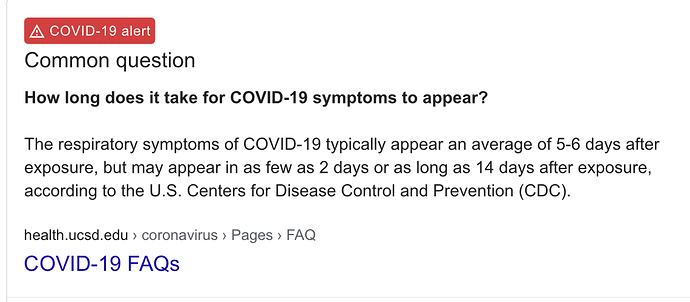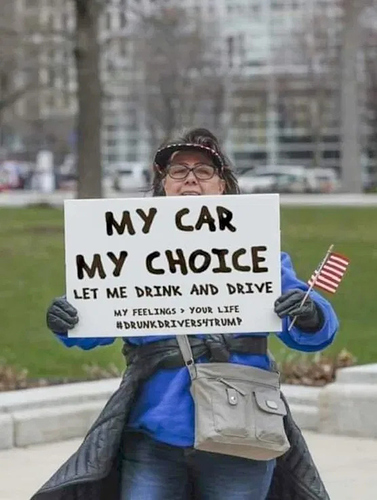That would require that people take science seriously in the first place. Or those that understand what real science is in the first place. Here was one poll from CA:
Isn’t it now called Pediatric Multisystem Inflammatory Sydrome or something like that? It’s in NY, NJ, CT, and other states and is spreading. It seriously sickens children and has killed some. But hey, we don’t want kids to miss out on sports, etc.
Here’s a video
Italy had about a 30 fold increase of it. If that occurs throughout the US (with 20,000 annual cases) that could be very bad.
Saw this on CNN today.
There was an error or mismatch in some counts.
This does not change the result that hospitalizations in Georgia are down 34% since around May 1.
So the doomsday predictions of the effects of Georgia opening early have proved wrong.
No, mixing antibody tests in to artificially lower your positive tests count is just plain dishonest. Texas, Virginia, Georgia and a few more are doing it so they can reopen sooner. And Georgia rearranged the x-axis so the trend would continually be downwards “by accident” as well. At least they corrected that one after getting called out.
Show me one specifically coming from an epidemiological modeling team. Or at the very least, show me what predictions you are referring to.
My point was that hospitalizations have dropped 34% since opening.
The error or dishonesty or misunderstanding on the antibody tests is not relevant to that improvement.
I did not mention the source of the predictions.
I was thinking more of all the politicians and news readers and commentators who predicted doom in Georgia.
Don’t you recall the outcry all over the news, claiming Kemp was reckless and would be killing people? Maybe the reporting was more pronounced here in Atlanta, where the left vilified him.
I don’t need to research the extent of failings in the modeling, as that was not my point or my assertion.
Yes, but the improvement in hospitalizations is not because they opened up, that’s the fruit of their shutdown as their cases were generally trending downwards since then.
How about you show me something? His decisions couldn’t lead to measurable negative consequences for weeks to months. Also at one point the President villified him as well.
Your analysis is missing a crucial factor: new case diagnoses are a lagging indicator. The time from exposure to diagnosis can be weeks due to two factors:
- Window between exposure and appearance of symptoms. (Up to 2 weeks right there.)
- Window between symptoms and swab. (Days)
- Window between swab and lab analysis. (Days)
- Window between analysis and reporting to health authority. (A day)
- Window between authority’s data collection and reporting. (A day)
So we have no idea right now what the effects of Kemp’s reopening order will be. We will not find out for probably another two weeks.
It is far too early to for the rooster to crow.
Grace and peace,
Chris Falter
It has been more than 3 weeks since Georgia started reopening, and the fact that hospitalizations are down by a third contradicts the doomsday predictions from three weeks ago.
It has been more than 3 weeks already, and it is my understanding that symptoms typically begin in 5-6 days. It was faster for the recent interesting choir story.
I disagree with your claim that we have no idea how this is going. I think we do have more than an idea about Kemp’s reopening. It is going well.
What is certain is that continuing the isolation of healthy people is having a damaging effect on economy and the education of children.
No, it is premature because we are just now reaching the point where many if not most post-reopening cases will show up.
The next 2-4 weeks will show us the trends after reopening.
I hope for the sake of my friends who live in Georgia that the data eventually support your optimism. So far, however, the data are insufficient.
Grace and peace,
Chris
I agree we will learn more in the next few weeks, and I am proud that our governor values the freedoms that many of us hold dear.
There is no such thing as a risk-free life.
There is no doubt that we have achieved the goal of social distancing and isolation: to keep the caseload below the ICU and ventilator inventory.
The change to “don’t let anyone get sick even if it destroys the economy by imprisoning healthy people” is not a goal change that I support.
I think it is more like:
Make sober drivers stay home to protect drunk drivers.
Make well people stay home so people with underlying conditions or risks are safe.
Targeted isolation and freedom of choice makes more sense.
It is more like:
Be a conscientious human being and care about the welfare of others.
Then there is the woman in Florida who alleges she was fired because she wouldn’t fudge the data coming out. Hmmm.
People who care about the welfare of others don’t keep them from working to feed their families as long as they aren’t known to be a danger to others. Assuming they might be a danger is insufficient to put them on house arrest
People who have close contact with many other people are a danger to others during a viral pandemic like this one. That’s the point.
Being conscientious of the economic needs of other people is also part of it. It’s an extremely hard balance to find. What doesn’t help is basing it all on “it’s my right to do so”. It’s also your right to say mean things to random people as they walk by, but do you do that? It’s your right to put on a bunny suit and balance pancakes on your head, but do you do that? It’s not what you have a right to do, but what you should do. That’s where the discussion should start.

